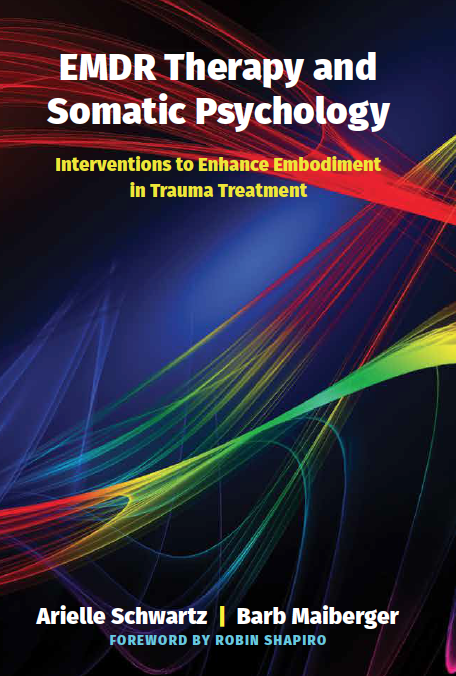
Having a history of trauma can lead to challenges in our relationships. Perhaps you have habitually avoided conflict, withdrawn out of fear, felt intolerant of rejection, or pushed people away when they got too close. These defensive strategies can lead to relationships that are consistently argumentative, disconnected and cold, or painfully superficial.
Trauma recovery helps us to build our capacity to handle conflicts with equanimity. Rather than needing to make yourself or another person wrong, you can learn to work through difficulties in a way that deepens your connections with others. It is important to know that you can work through ruptures of connection and create a positive outcome. Ultimately, it is possible to learn to trust that small amounts of disconnection and conflict can actually can lead to deepened sense of trust and love.
“Healthy conflict requires tolerance for difference, disconnection, and discord. Letting someone know that they have hurt your feelings can feel frightening. Taking responsibility for hurting someone you love can evoke shame. It takes wisdom to refine primal reactions into caring, thoughtful responses.”
-Dr. Arielle Schwartz

Sadly, if you experienced childhood neglect or abuse, this can betray your trust in others and can impair your ability to form healthy relationships into adulthood. You might have a history of choosing abusive partners because it felt familiar. However, over time trauma recovery can help you to heal relational wounds and cultivate an ability to trust and love.
Negotiating conflict within a healthy relationship requires the ability to accept uncertainty, ambiguity, and disappointment. There may be times that you want to be right. You might want this so badly that you forget to step into the other person’s shoes and see things from their point of view. However, rigidly holding onto your point of view or the need to be right can exacerbate the experience of distance, misunderstanding, or confusion.
Navigating healthy conflict relies upon your capacity to change your perspective and look at a situation from another person’s point of view. This requires, having cognitive flexibility or the ability to change how you are thinking about a person or situation. Cognitive flexibility helps to prevent you from being stuck in one way of thinking about a situation. It allows you to adapt and respond to new information and is a valuable skill when it comes to conflict resolution.
Navigating healthy conflict requires a willingness to show up in an openhearted and honest manner. You can practice opening yourself up to conflicting views, competing needs, your own and another person’s fears, and the underlying pain that is part of the shared human experience. In time, you can learn to compromise without the need to make yourself or another person wrong.

Trauma recovery can help you to build tolerance for conflict by learning mindfulness which allows you to observe your emotions and the sensations while recognizing that you do not need to take immediate action. For example, you increase your ability to pause before acting out of anger. In yoga, nonviolence is also an important ethical principle. Nonviolence starts with treating yourself or speaking to yourself in a loving manner. This translates into a capacity to treat others with kindness. Nonviolence is about letting go of the need to be right, for this inevitably makes another wrong. Instead, it is about coming to the table interested in listening to another with an open heart.
Developing a capacity to handle healthy conflicts involves learning to respect others, even when you feel angry. You commit to behaving fairly by refraining from putting other people down and apologizing when you have done something wrong. Healthy conflict also asks that you develop the capacity to ask for what you need, even though you risk being told no or feeling rejected.
A good rule of thumb is to choose to work out a conflict when there is a mutual commitment to the relationship and to seeking a positive outcome. Rather than pushing away from connection, see what happens when you return to your breath and stay curious about your experiences. As you become increasingly skilled, these same set strategies can allow you to skillfully work with a wider range of relational experiences. For example, you can practice healthy conflict resolution in a workplace. Or, you can practice skillful listening when engaging with people who have different cultural, religious, or political perspectives.
It is important to recognize that nonviolence does not equate non-action. There are times when you must stand up and protect what is worth protecting especially when your own safety or the safety of another person is at risk.

It is not always easy to know how you impact another person. The idea of the “emotional wake” was introduced by a Susan Scott (2002) in her book Fierce Conversations. Imagine for a moment the wake of a boat moving through still water. Likewise, your emotional wake is comprised of the ripples or impact that you have on the world. For example, we can cause a painful ripple effect when blame, call people names, speak sarcastically, put people down, talk behind someone’s back, or give someone the silent treatment. In truth, we all do things that create distress in the people around us. That’s called being human.
Our own trauma recovery can ultimately allow us to increase awareness of the wake that we leave behind. We do so by asking for feedback from someone who is trustworthy, kind, and honest. For example, you can ask “How do you feel after our conversations?” or “What do you feel when I enter or leave the room?” Then your job is to listen nondefensively and really take in any feedback that someone has to offer. Try to pay attention and respond kindly. Allow yourself to sift through the feedback for the kernels of truth that feel relevant to you and your life. Once you have received feedback, you can then take time to explore what changes you would like to make in your behavior or interactions.
It is also important to recognize that not everything you hear will be true for you. Harsh or critical feedback is not easily digested and therefore is not nourishing to your soul. Here, the practice involves letting go of unhelpful information, setting a boundary, asking for feedback to be delivered with compassion, or seeking a different source of feedback.

It is an offering of kindness to be willing to set down our defenses or to admit that we are wrong in service of relationship. When you can take responsibility for your emotional wake you are essentially saying, “I am interested in knowing the impact that I have on you, I care about you, I’ll do my best to listen to you, and I am invested in who you are as a person.” This process allows you to show that you are invested in the other person and in the relationship.
Ultimately, trauma recovery helps us to be willing to be vulnerable in relationships. We develop a greater sense of relating to another person from the heart, not the ego. In truth, nobody is perfect. We all make mistakes sometimes. We hurt each other sometimes. However, is not our mistakes that define us. Rather, it is our ability to learn from those moments and make amends that really shapes who we are.
Taking responsibility for your emotional wake can also allow you to be conscious of the positive, nourishing, and loving wake that you can extend into the world. With intentionally positive actions, you can leave behind a ripple effect of kindness, gentleness, and understanding. Moreover, these ripples can inspire others to respond in kind. There are endless opportunities to pay attention to each other and to respond with compassion. You never know when a courageous conversation can change a life for the better.

The Complex PTSD Workbook is available on Amazon! Click here to check it out.

Connect to this post? The EMDR Therapy and Somatic Psychology book, is available on Amazon! Click here to increase your toolbox for healing. An integrative and effective approach to healing from trauma.

Dr. Arielle Schwartz is a licensed clinical psychologist, wife, and mother in Boulder, CO. She offers trainings for therapists, maintains a private practice, and has passions for the outdoors, yoga, and writing. Dr. Schwartz is the author of The Complex PTSD Workbook: A Mind-Body Approach to Regaining Emotional Control and Becoming Whole (Althea press, 2016) and co-author of EMDR Therapy and Somatic Psychology: Interventions to Enhance Embodiment in Trauma Treatment (Norton, 2018). She is the developer of Resilience-Informed Therapy which applies research on trauma recovery to form a strength-based, trauma treatment model that includes Eye Movement Desensitization and Reprocessing (EMDR), somatic (body-centered) psychology and time-tested relational psychotherapy. Like Dr. Arielle Schwartz on Facebook, follow her on Linkedin and sign up for email updates to stay up to date with all her posts.

Arielle Schwartz, PhD, is a psychologist, internationally sought-out teacher, yoga instructor, and leading voice in the healing of PTSD and complex trauma. She is the author of five books, including The Complex PTSD Workbook, EMDR Therapy and Somatic Psychology, and The Post Traumatic Growth Guidebook.
Dr. Schwartz is an accomplished teacher who guides therapists in the application of EMDR, somatic psychology, parts work therapy, and mindfulness-based interventions for the treatment of trauma and complex PTSD. She guides you through a personal journey of healing in her Sounds True audio program, Trauma Recovery.
She has a depth of understanding, passion, kindness, compassion, joy, and a succinct way of speaking about very complex topics. She is the founder of the Center for Resilience Informed Therapy in Boulder, Colorado where she maintains a private practice providing psychotherapy, supervision, and consultation. Dr. Schwartz believes that that the journey of trauma recovery is an awakening of the spiritual heart.